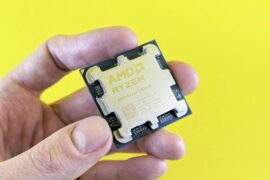This article may contain references to products or services from one or more of our advertisers or partners. We may receive compensation when you click on links to those products or services. Nonetheless, our opinions are our own.

Updated by Albert Fang
Are you deciding between investing in exchange-traded funds (ETFs) or mutual funds and not sure which is the better option? This article will investigate the differences between these two similar but unique investment fund options.
What is an Exchange Traded Fund?
Exchange-traded funds (ETF) are baskets of holdings- such as stocks, bonds, or any other asset class holdings. When you buy an ETF you are purchasing a diversified basket of holdings which helps to remove concentrated single-stock (or asset) risk. ETFs can participate in any broad asset class, such as the total U.S. stock market, or a more specific niche, such as Emerging market bonds.
As a wise individual investor, it is prudent to diversify the investments in your portfolio in accordance with your investment plan. ETFs provide a low-cost method of broad investing.
What is a Mutual Fund?
A mutual fund is similar in many ways to an ETF. Mutual funds are comprised of pooled baskets of assets that are diversified and managed by a brokerage fund manager. Mutual funds cannot be traded throughout the day, and all buys and sells (purchases and redemptions) are handled directly through the financial institution directly. Because there is no way to trade mutual funds intra-day on the stock exchange, mutual funds are better suited for long-term investors.
Mutual funds have much larger assets under management than that of ETFs, largely because they have gained popularity in company-sponsored individual retirement accounts– 401(k)s.
Mutual funds are professionally managed by a brokerage company or financial institution. Mutual funds are extremely liquid as well, and can always be traded any day the market is open at the closing price- net asset value.
Mutual funds must own all the holdings they represent in the firm’s account. Of course, there is always market risk, so investment returns can never be guaranteed, but mutual funds assets themselves will be safely held. Specifics related to fund strategy (passive index tracking or active management) can be found in the fund’s summary prospectus. Tax and broker information will also be included in the prospectus.
Similarities
Both exchange traded funds and mutual funds are baskets of assets- stock, bonds, commodities, REITs (real-estate investment trusts), or even other funds. Both mutual funds and ETFs can be invested in most brokerage accounts– such as Schwab, Vanguard, or Fidelity.
Similarities between these funds:
Professional Fund Management
Funds can be passive index funds or actively managed by the fund. In either case, the fund manager must stick to the specific targets and strategy outlined in the summary prospectus.
Multiple Investment Options
Both funds provide investors with a large range of asset classes to choose from, including stocks, bonds, commodities, money-market (cash interest products), and alternative investments (such as real-estate).
ETFs started as passively managed index funds and tracked common stock indices or particular sector indices. This distinction has changed in recent years. Currently, passive index funds account for most of the ETF and mutual fund assets under management.
Nevertheless, there are numerous actively-managed ETFs overseen by expert portfolio managers, which are widely available to investors. These active funds often charge higher annual management fees because of the financial research, analysis, and diligence performed by active financial managers.
Diversification
Both funds achieve the goal of diversifying investment better than investing in individual stocks.
Differences
ETFs and mutual funds have multiple differences that investors should understand when deciding between these two fund options.
ETFs can be traded intra-day on the stock market at any time individual stocks trade. But mutual funds may only be purchased by the end of the trading day (orders must be submitted to the fund prior to the close).
Mutual funds have been established longer than ETFs. The first mutual fund was launched in 1924. ETFs are new the SPDR S&P 500 ETF, SPY, started trading in 1993.
Previously, actively managed funds were popular, which meant that fund managers made investment decisions and picked specific stock to be owned in the fund.
Minimum Investment
There minimum investment for an ETF is the price of one share. Furthermore, many firms now offer fraction share trading for both individual stocks and ETFs- so many ETFs can actually be bought for even less with these brokers.
MFs have a larger minimum investment than ETFs. Minimums depend upon the fund and financial institution. For example, the Vanguard 500 Index Investor Fund Admiral Shares has a $3,000 minimum investment, but the American Growth Fund of America only requires a $250 initial investment.
Timing of Trading
Exchange-traded funds can be traded on the stock exchange at any time during a trading day. Mutual funds on the other hand, can only be traded at the closing day’s net asset value.
Fund Management Style
Although both ETFs and mutual funds can be actively or passively managed, ETFs are mostly passive funds that track a specific index.
There is a larger percentage of mutual funds that are actively managed than ETFs. Nevertheless, the largest funds, compared by assets under management, are mostly passively managed. In either case, make sure to check the fund prospectus to understand the strategy of the fund.
Cost of Trading
In addition to annual managed fees, which are common in both funds, ETFs have an implicit fee incurred because shares need to be bought or sold on the stock exchange.
Most brokers now charge minimal (or zero) fees, but there is a spread in the market that results in a small cost to the investor. In addition to the spread fee, ETFs can fluctuate slightly between their ‘fair price’- called net asset value, and their price in the market. These small differences are usually minor, if at all, but can add an extra 0.05%-0.20% in costs when purchasing or selling an ETF.
Although MFs can be purchased without paying trading commissions, they sometimes can have explicit sales fees known as “loads.” However, most top mutual funds are now offered without loads, as there has been extreme fee-cutting competition between fund managers in recent years.
Tax Efficiency
ETFs typically create less taxable capital gains because they have less turnover and can manage the cost basis through their creation/redemption process. This process allows third-party traders and market-makers to swap in-kind baskets of assets for shares of ETFs, minimizing the fund’s direct purchases and sales. Because of the structure, ETFs are more tax efficient than MFs and distribute fewer capital gains.
Remember, regardless of whether your investment in the fund makes or losses money, the fund may separately have capital gains to distribute or pay taxes on based on fund holdings prior to or during your holding period in the fund.
ETFs vs. Mutual Funds: Which is the better option?
If you are deciding between ETFs or mutual funds, your specific investment goals and needs should be considered. If you have the intention to actively trade the funds, ETFs provide more flexibility with no minimums and are available for trading throughout the day.
If you are looking to buy and hold for the long term- mutual funds may be cheaper, as they do not have implicit sales costs from buying and selling on the exchange. Nevertheless, ETFs have better tax efficiency, which may outweigh the slightly reduced cost of a comparable mutual fund.
There is multiple considerations, including whether the fund will be held in a tax-deferred retirement plan (which can reduce the impact of capital gains distributions), as well the investment time horizon. There is no ‘best for all’ category between ETFs and mutual funds, so you should always consult your financial advisor or accountant if you are uncertain.

Reviewed and edited by Albert Fang.
See a typo or want to suggest an edit/revision to the content? Use the contact us form to provide feedback.
At FangWallet, we value editorial integrity and open collaboration in curating quality content for readers to enjoy. Much appreciated for the assist.
Did you like our article and find it insightful? We encourage sharing the article link with family and friends to benefit as well - better yet, sharing on social media. Thank you for the support! 🍉
Article Title: Exchange Traded Funds (ETFs) vs. Mutual Funds: What’s Better?
https://fangwallet.com/2022/12/08/exchange-traded-funds-etfs-vs-mutual-funds-whats-better/The FangWallet Promise
FangWallet is an editorially independent resource - founded on breaking down challenging financial concepts for anyone to understand since 2014. While we adhere to editorial integrity, note that this post may contain references to products from our partners.
The FangWallet promise is always to have your best interest in mind and be transparent and honest about the financial picture.
Become an Insider

Subscribe to get a free daily budget planner printable to help get your money on track!
Make passive money the right way. No spam.
Editorial Disclaimer: The editorial content on this page is not provided by any of the companies mentioned. The opinions expressed here are the author's alone.
The content of this website is for informational purposes only and does not represent investment advice, or an offer or solicitation to buy or sell any security, investment, or product. Investors are encouraged to do their own due diligence, and, if necessary, consult professional advising before making any investment decisions. Investing involves a high degree of risk, and financial losses may occur including the potential loss of principal.
Source Citation References:
+ Inspo











































